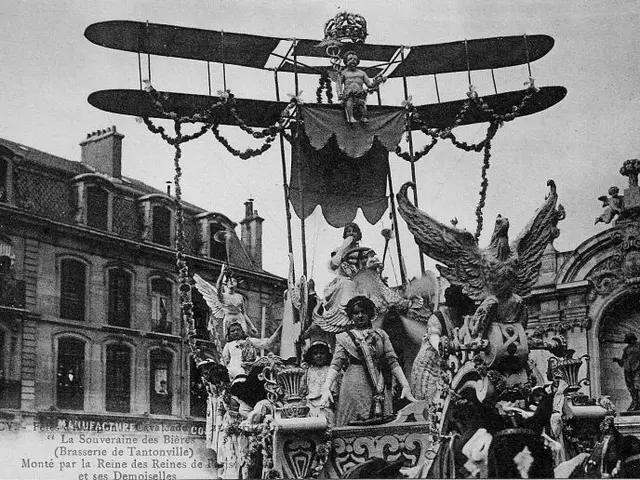In a particular regard, dogs can appear to exhibit behaviors characteristic of children. - Are canines superior to human children?
Dogs as Family Members: The Rising Trend of Canine Companionship
In many households across Germany, the four-legged companions are receiving the same level of care and affection as human children. As the birth rate continues to decline in numerous countries, researchers have been investigating whether there is a link between this trend and the increasing number of pet dogs.
With less contact with children in their daily lives, adults in Western and East Asian societies are increasingly turning to pets, particularly dogs, to fulfill the role of companions. According to Hungarian researchers in the journal "European Psychologist," many owners even consider their dogs as their children.
The role a dog plays in a household depends on the life situation. For young singles, it serves as a roommate or best friend. For newlyweds, it may be their first child. In families with small children, it functions as a playmate, while in households of the elderly, it can provide companionship and help reduce feelings of loneliness.
It is suggested that people redirect their biological urge to care for others onto animals. But what makes dogs such popular stand-ins for children? As Laura Gillet and Enikő Kubinyi of Eötvös Loránd University Budapest discovered after evaluating various studies, dogs can build a bond with their caregivers similar to the bond infants develop with their parents. In addition, dogs need care and attention throughout their entire lives, making them ideal recipients of care and affection.
In Germany, one in five households (21 percent) includes a dog, and the percentage has remained relatively stable in recent years. German pet owners spent around seven billion euros on food and accessories for their furry friends in 2024.
It's worth noting, however, that dog owners generally distinguish between humans and animals, prioritizing human life in hypothetical dilemmas and maintaining positive relationships with both. While dogs play an important role in people's lives, they are not typically kept as replacements for children. In fact, many owners choose dogs precisely because they are not like children.
There are cultural differences in the relationship people have with their dogs, shaped by historical, religious, and social factors. For instance, in Western, traditionally Christian-influenced societies, dogs are increasingly regarded as family members and sometimes fulfil child-like roles. Research indicates that dog-owner relationships can become highly sync'd, with personalities and emotional states influencing each other.
While the bond between Western dog owners and their pets is strong, the value placed on animal lives is generally less than that placed on human lives. Moreover, dog ownership is often seen as less burdensome than parenting a child, partly due to the shorter lifespan of dogs.
In Muslim-majority countries, attitudes toward dogs have historically been influenced by religious views and cultural traditions. However, there is a growing number of people who keep dogs as companion animals, often with respect to religious hygiene practices. Compassion and kindness toward animals, including dogs, are also emphasized in some Islamic teachings.
In East Asian cultures, such as Japan, the relationship between humans and dogs tends to be more distant than in Western societies, although the intensity of the "parenting" metaphor is less pronounced than in some Western societies.
In other regions, such as South Asia and Africa, attitudes toward dogs can vary widely, with some communities viewing them primarily as working animals or guards, while others consider them companions.
Overall, the relationship between dog owners and their pets worldwide is a fascinating reflection of cultural heritage, religious beliefs, and social change.
In the context of the rising trend of canine companionship, it is interesting to note that the lifestyle of many pet owners might overlap with home-and-garden interests, as pets, particularly dogs, require suitable living environments. Furthermore, the bond between some pet owners and their dogs can be so strong that it may extend to considering their dogs as family members, altering the employment policy within households by requiring additional time and resources for pet care.








